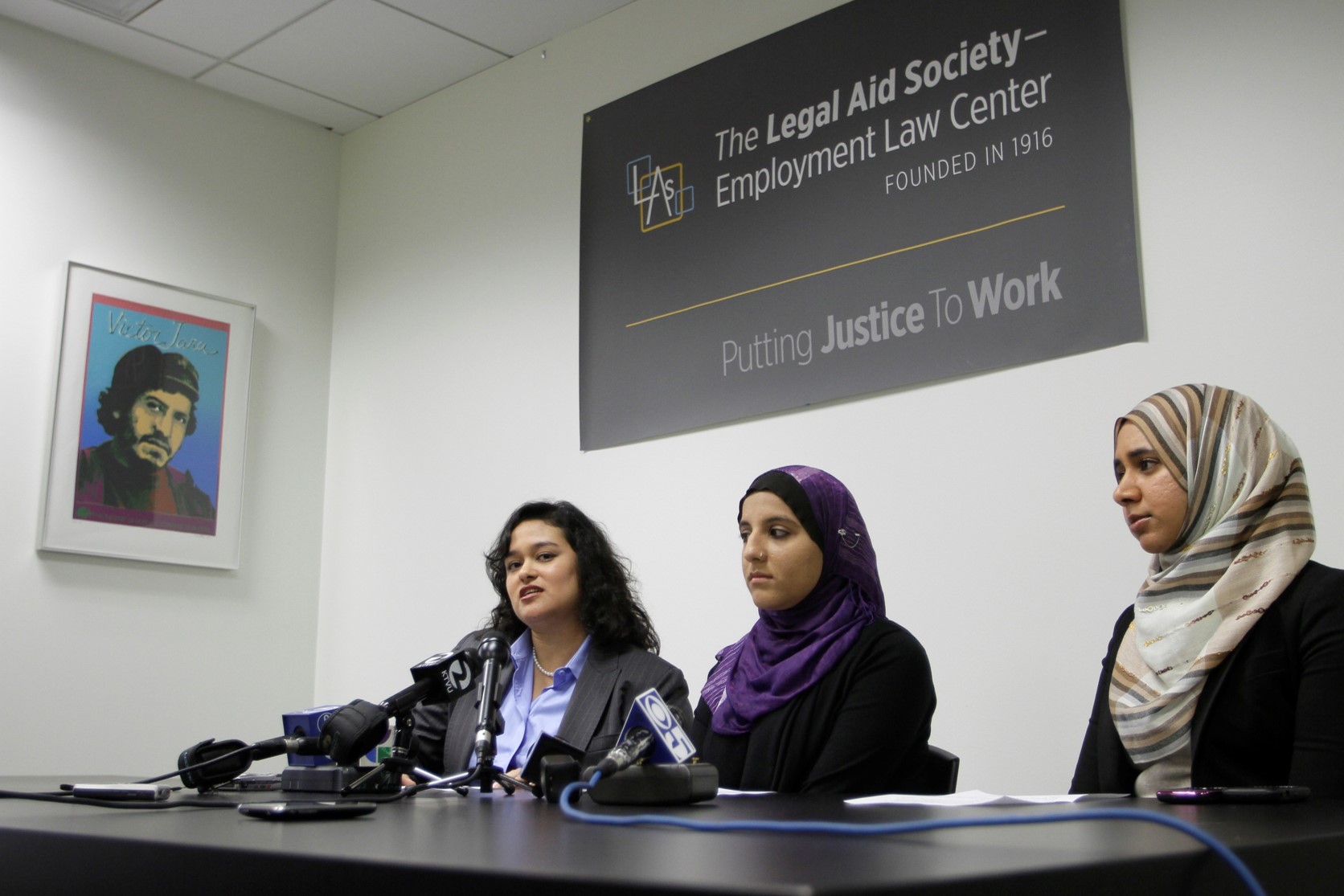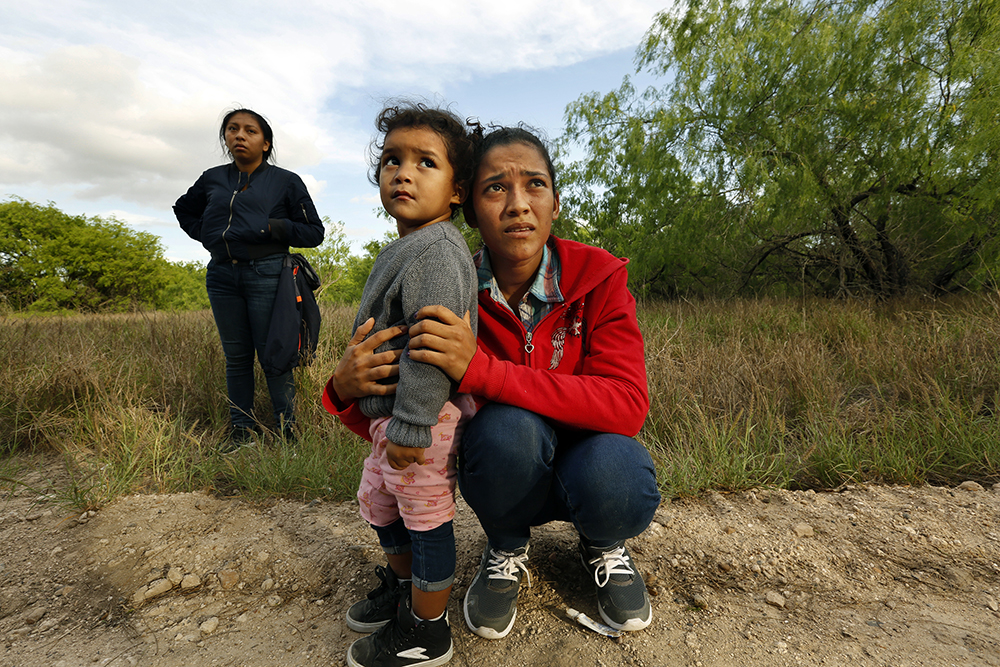Just off the major traffic artery of 16th Street NW in the Columbia Heights neighborhood of Washington, D.C., where gentrification has forced out generations of Latinx and Black renters, an eight-story apartment building is blanketed with hand-painted signs: “FOOD, NOT RENT” the black-and-red lettering reads. “CANCEL RENT.”
Julissa Pineda, 22, has lived in the building, Richman Towers, with her mother and two brothers for three years. In March, shortly after D.C. Mayor Muriel Bowser declared a state of emergency in the city, Pineda was laid off from her job as a restaurant server. Almost immediately, Pineda, who is the main earner in her family, knew she would not be able to afford her rent without borrowing heavily: The family pays $1,950 per month for their two-bedroom apartment. “Sometimes we need to buy a couple things,” she said. “It is necessary to have money.”
Get Talk Poverty In Your Inbox
Other families, some of whom have called the building home for nearly 30 years, were in similar positions, Pineda said. Many worked paycheck to paycheck in the service industry, and after they lost their jobs, had no idea how they could continue to make rent. Along with other families in her building, Pineda began organizing residents to lobby its landlord for rent forgiveness. But five months into a pandemic that has killed more than 550 people in D.C., neither their public pressure nor private lobbying has been successful.
Pineda says that some of those families — including her own — have resorted to increasingly precarious ways to pay rent, including borrowing money from friends and high-interest lenders, or in the case of other Richman Towers residents, by slapping the balance on a credit card.
Renters in D.C. and around the country are struggling to make their way in a city that’s been flattened by the one-two punch of a pandemic and recession. Even in times of relative regional prosperity, D.C. is a difficult city to live in: It consistently ranks as having one of the most expensive rental markets in the country, as well as one of the nation’s highest rates of income inequality, with the top fifth of earners making about 29 times more than the bottom fifth.
So it’s no surprise that renters are underwater. By mid-June, more than 116,000 people — a figure equal to nearly one in every six people who live in the capitol — had filed for unemployment in D.C. By the end of the first week of June, the percentage of people in D.C. who were able to pay all or part of their rent dropped three points from the same period last year, according to data collected by property management software company RealPage, to under 83 percent, one of the highest drops in the country.
As the effects of historic mass layoffs begin to throttle the economy — and renters’ wallets — rental data indicate that more people than ever are relying on their credit cards to make rent. Those who are able, anyway: 8 percent of people in D.C. are unbanked, and 27 percent don’t have access to a line of credit.
“The concern we have is that these effects would snowball. That [renters] would use these alternative methods to pay rent, and then that high interest becomes a vehicle for more debt to incur,” Cashauna Hill, executive director of the Louisiana Fair Housing Action Center, testified during a June 10 hearing before the House Subcommittee on Housing, Community Development, and Insurance. “There is a very real risk of people being forced into homelessness because they’re being forced to find alternative methods to cover their rent costs.”
Two widely used rental management software companies, Entrata and MRI, used data from around the country to report spikes in credit card rent payments of up to 7 percent compared to spring of last year. Other initial studies indicate that up to 18 percent of families using their credit cards to make rent have done so for two months in a row. Meanwhile, housing policy experts are beginning to warn lawmakers about the long-term implications of the practice. “Of course the question then becomes, on down the road, how will they pay those credit cards off?” Andrew Aurand, vice president of research at the National Low Income Housing Coalition, said of lower-income renters. “It’s troubling. It’s concerning.”
Still, in D.C., some local officials are actually encouraging renters to take on this debt. On June 8, the city’s local trial court created an online payment system that suggests people going through eviction proceedings pay the rent they owe with e-checks and credit or debit cards, with processing fees that cost as much as 2.5 percent of the total transaction. In an emailed statement to TalkPoverty, a spokesperson for D.C. Superior Court said “It is not required that funds be paid online. As the [court’s] June notice indicates, tenants can continue to pay their landlord.” But while paying rent on a card isn’t mandatory, the mere availability of the offer puts pressure on already cost-burdened residents.
“There are transactional costs associated with all of these different things, but having a 2.5 percent transactional cost to pay for rent is very high,” Harrison said. “And it’s just something that, if you don’t have a lot of income, it’s not something you can budget for.” It’s not uncommon for landlords to try and evict tenants over unpaid bills as small as $25 or $50, or about as much as the extra credit card processing fees they’re faced with paying now.
Visa, meanwhile, reported a 7 percent increase in its quarterly revenue — more than $400 million — since this time last year.










